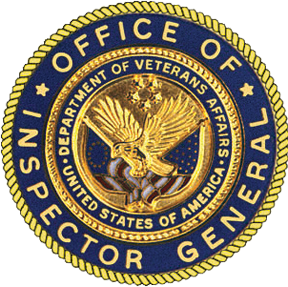Financial Efficiency Inspection of the VA Augusta Health Care System in Georgia
Report Information
Summary
The VA Office of Inspector General (OIG) conducts financial efficiency inspections to assess the VA healthcare systems’ oversight and stewardship of funds and to identify opportunities for achieving cost efficiencies. The OIG identified several opportunities for improvement in four areas: accrued expense oversight, purchase card use, inventory and supply chain management, and pharmacy operations.
The team reviewed a sample of outstanding accrued expenses for goods or services ordered, obligated, and received but not paid for and due in the current accounting period. Following the review, the team projected that 57 percent of outstanding accruals amounting to an estimated $4.6 million were not supported by documentation such as an invoice and should have been used for other purposes to benefit veterans.
Regarding purchase card use, the inspection team projected the healthcare system had noncompliance errors in at least 6,800 purchase card transactions, totaling at least $6.7 million. These errors frequently lead to improper payments.
The team identified discrepancies in three inventory storage areas between what was reported in the inventory system and what was physically present. For items reviewed by the team, the system records were overstated by almost 38,800 items (about 99 percent) totaling over $2.1 million. Errors could diminish the healthcare system’s ability to effectively budget for the purchase of supplies to meet patient care needs.
Finally, the team observed a growing gap between observed and expected drug costs. In FY 2020 observed drug costs were almost $2.8 million more than expected; in FY 2021, about $3.8 million; and in FY 2022, over $5 million. Anticipating drug costs and knowing when to restock helps a healthcare system maintain needed supplies and make the best use of appropriated funds.
The team made nine recommendations to improve oversight.
Ensure that healthcare system finance office staff are made aware of policy requirements and that all accruals are proper and valid, as required by VA Financial Policy, vol. 2, chap. 5, “Obligations Policy.”
Collaborate with the Veterans Integrated Service Network chief financial officer and network contracting office to establish a monthly prioritized listing of contract modifications and canceled orders for goods or services that have not been addressed by contracting officers to ensure modification actions are completed.
Ensure cardholders comply with prior approval, purchase card reconciliation, and record retention requirements as required by VA Financial Policy, vol. 16, chap. 1B, “Government Purchase Card for Micro-Purchases.”
Develop and implement processes to ensure all necessary reports are monitored routinely and appropriate steps are taken to ensure all supply chain performance measures are maintained in compliance with policy.
Develop and implement a plan to ensure data accuracy and reliability in the Generic Inventory Package in accordance with Veterans Health Administration policy.
Develop formalized processes for monitoring and achieving efficiency targets and using available pharmacy data to make business decisions.
Develop and implement a plan to achieve an inventory turnover rate closer to the Veterans Health Administration’s recommended level.
Ensure that pharmacy staff are trained on the ScriptPro workflow system for pharmacy.
Establish processes to ensure compliance with the Veterans Health Administration directive to complete the B09 reconciliation process.
